Mexico City, November 30, 2018.- Thelma Moiza, representative of the Río Sonora Watershed Committees (CCRS by its Spanish acronym) and resident of the affected community of Bacánuchi, participated, this week, in the UN Forum on Business and Human Rights in Geneva. The objective: to raise awareness of the human rights abuses caused by Grupo México as a result of the 2014 toxic spill from their mine, and to share different points of view regarding community organization, particularly regarding the experiences of women human rights defenders.
Thelma participated in different spaces in which she was able to share her experiences with representatives from other communities, organizations and delegations from around the world. “We want justice, reparations for the damage caused and guarantees of non-repetition, and we want to be able to participate in and make decisions about the things that affect us”, she said.
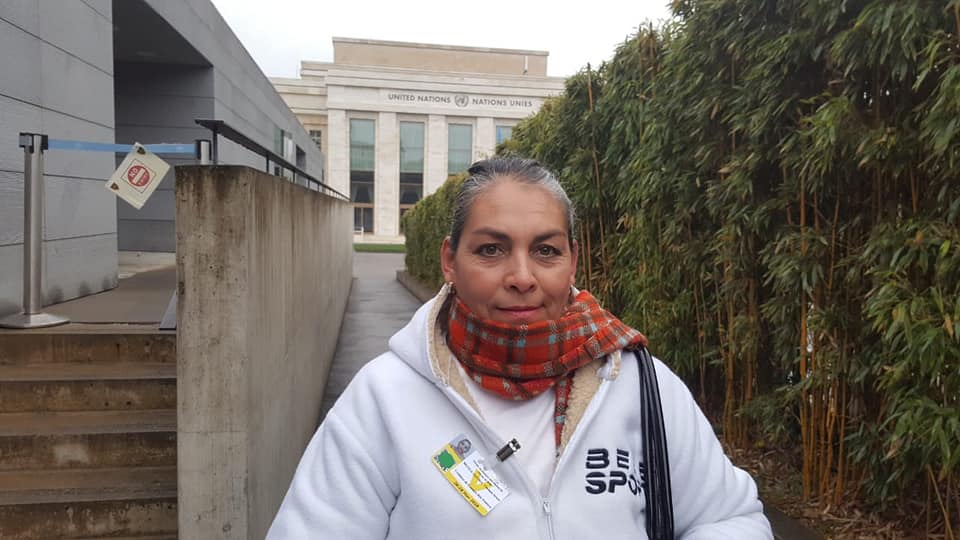
Thelma Moiza on her arrival at the UN headquarters in Geneva. 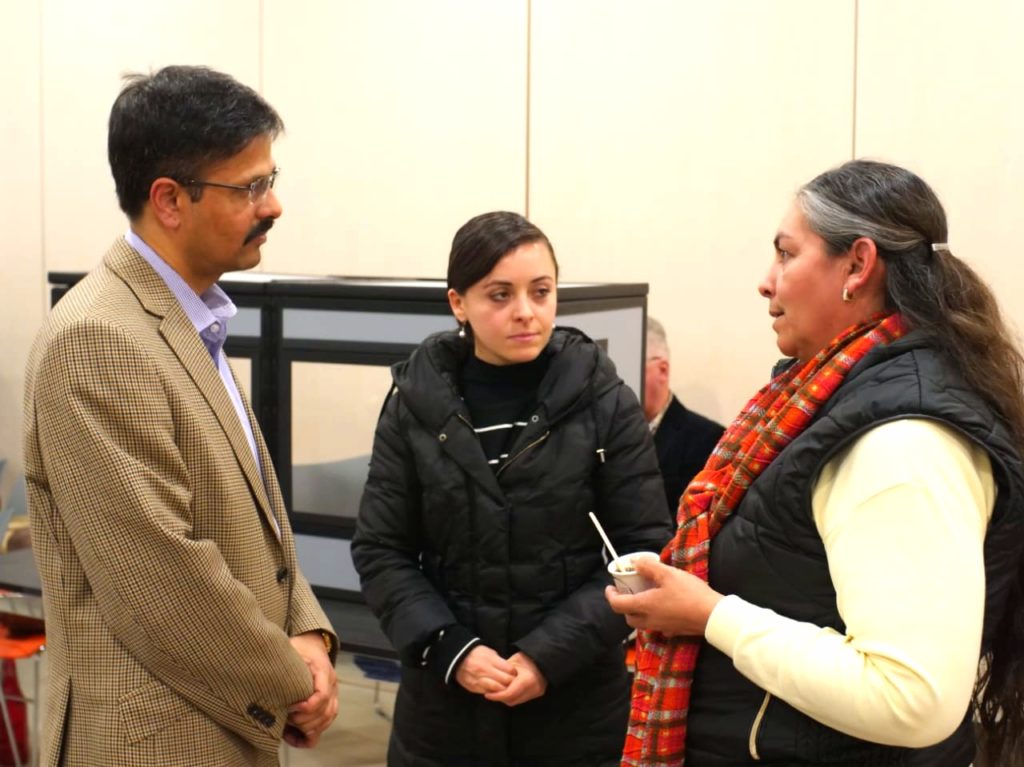
Thelma talks to Surya Deva (UN’s Business and Human Rights Working Group). She is accompanied by Ivette González, from PODER. 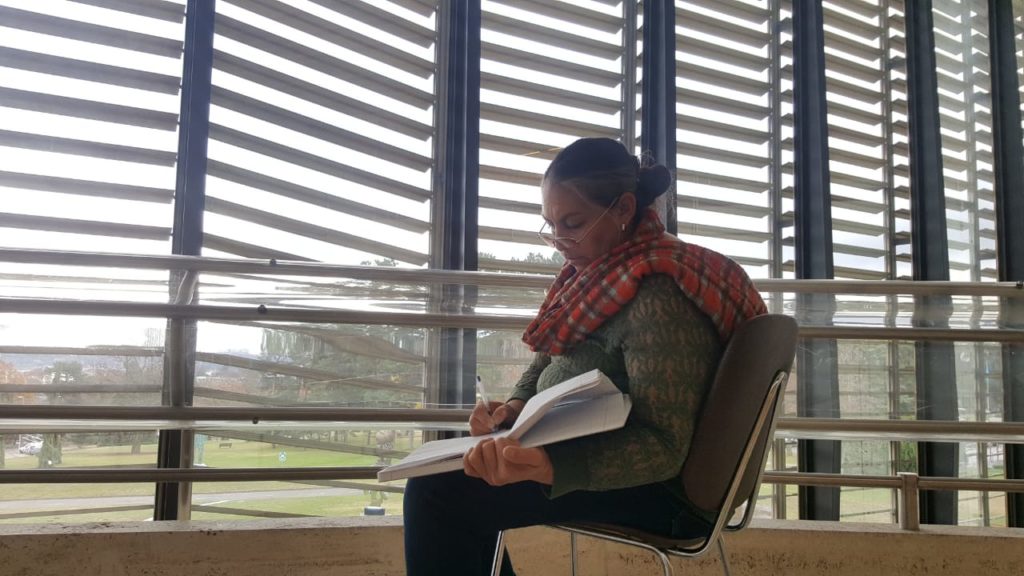
Thelma reviews her notes before her intervention. 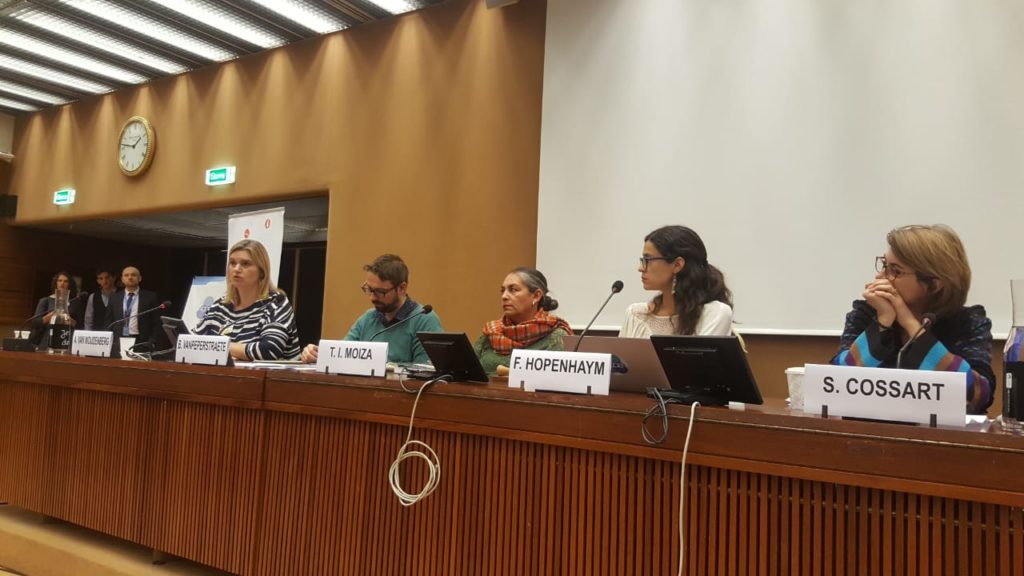
Aspects of Thelma’s participation in the Forum. 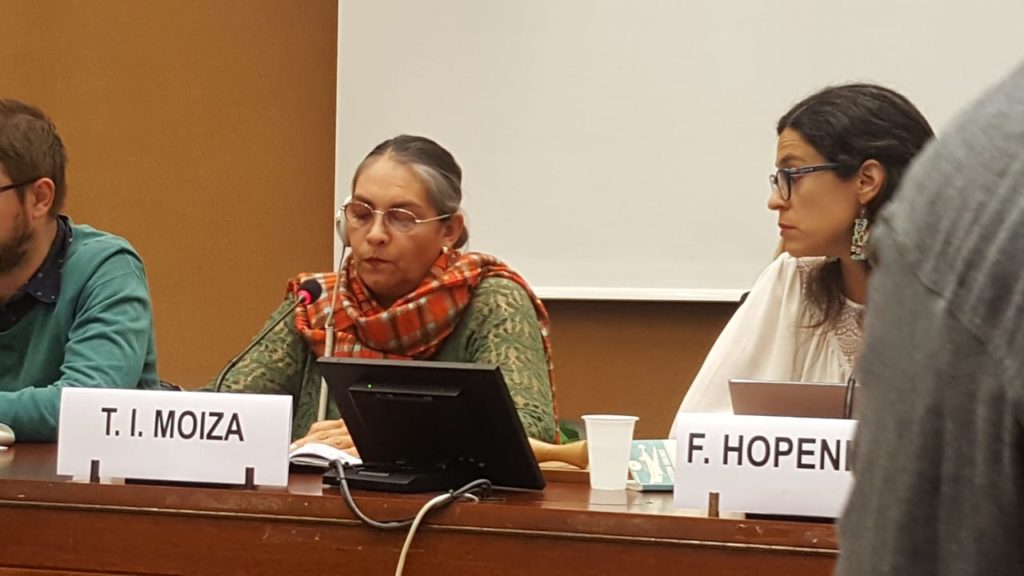
Aspects of Thelma’s participation in the Forum.
At the meeting Defending the right of affected communities to participate in environmental matters: ruling of the Supreme Court of Justice, she talked about the importance of rural communities (like those she represents) and indigenous communities working together, and had the opportunity to discuss her case with members of the UN Working Group on Business and Human Rights, including requesting their follow-up on the case.
She also participated in the panel discussion Due diligence and remediation, is one possible without the other?, together with members of communities that are victims of human rights abuses caused by gold mining companies in Tanzania; copper mining companies in Mexico, and workers in the textile industry in Pakistan. Thelma was able to hear about and comment on several important issues, including: whether remediation for damage caused should be the responsibility of companies; what role the State plays in terms of remediation; and the responsibility of investors in terms of undertaking human rights due diligence. In addition, the participants shared ideas on how solutions based on hard and soft law instruments can be proposed by and for affected communities. The panel was organized by Amnesty International, SOMO, Clean Clothes Campaign, Sherpa, OECD Watch, PODER, Rights and Accountability in Development (RAID) and Global Witness.
The community representative attended another essential event during the Forum, the indigenous Caucus, an event in which indigenous people and communities from around the world were able to express their concerns and formulate a common stance. During this event, participants worked towards their vision of finding common ground between indigenous and non-indigenous communities that suffer similar adverse human rights impacts caused by business activities.
As representative of the seven communities affected by the spill, and invited by the organization International Service for Human Rights, Thelma also participated in the Forum on Sustainable Development and Human Rights, together with other affected individuals from Latin America, as well as experts from different sectors.
This experience allowed the CCRS to update the UN Working Group on Business and Human Rights, in particular their current president, Surya Deva, on the Río Sonora case. Thelma was also able to talk about the impacts of mining activities in Mexico and share proposals and suggestions for possible actions.
Finally, in an event for women human rights defenders, organized by Oxfam México and PODER, Thelma shared experiences with representatives from different countries regarding adverse human rights impacts on women.
The PODER team accompanied her during this trip. Thelma’s participation in the Forum was made possible thanks to the support of the European Union.
